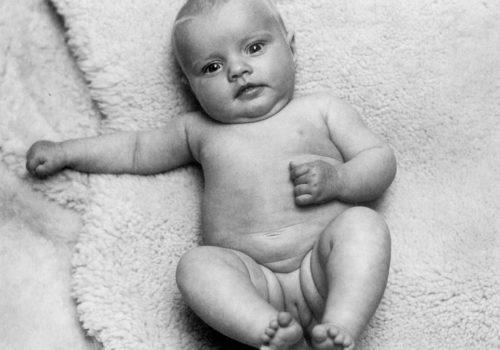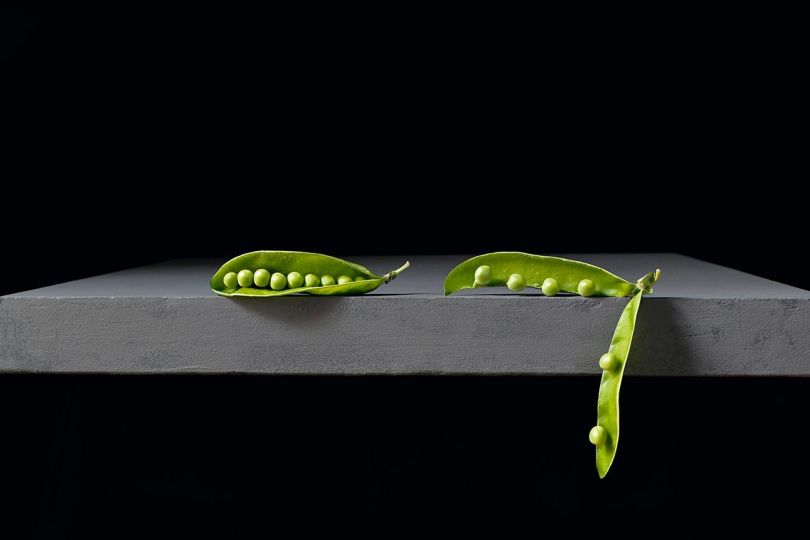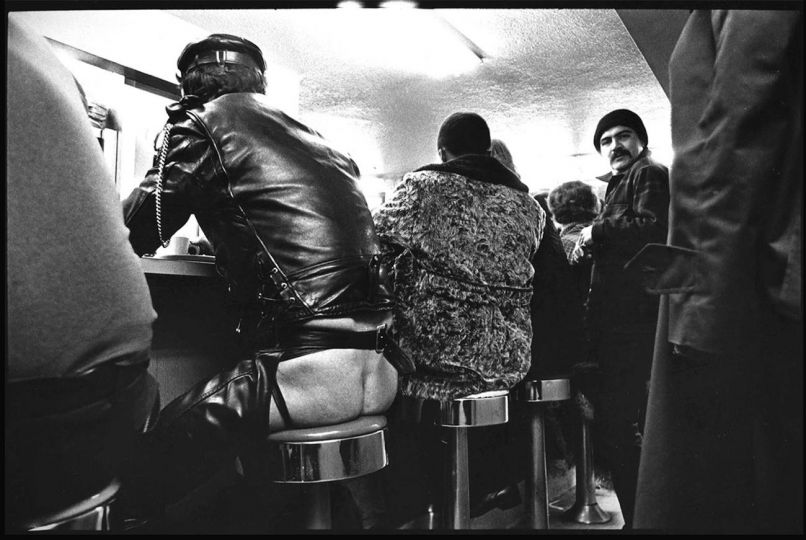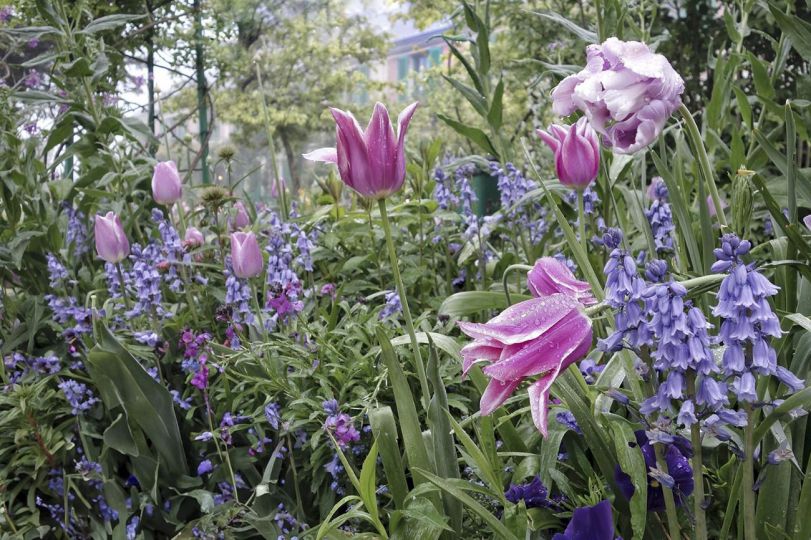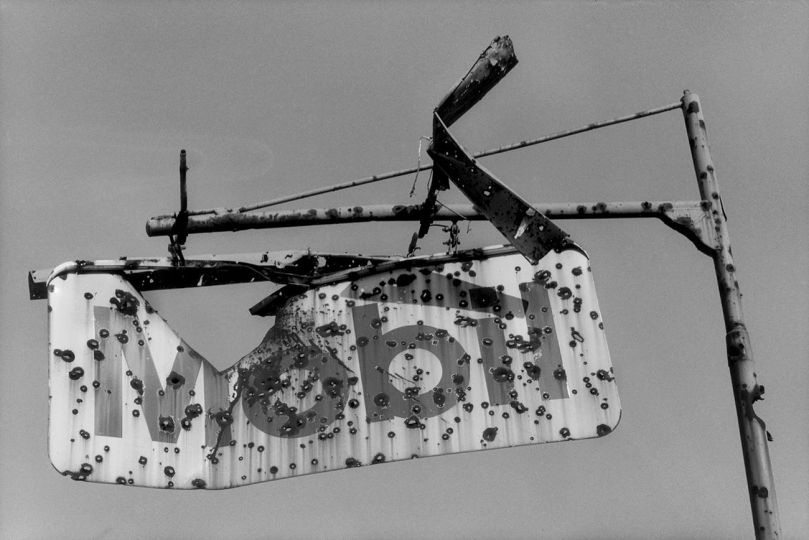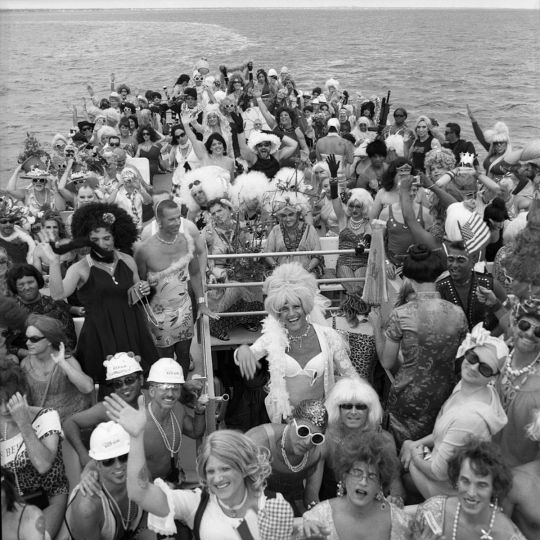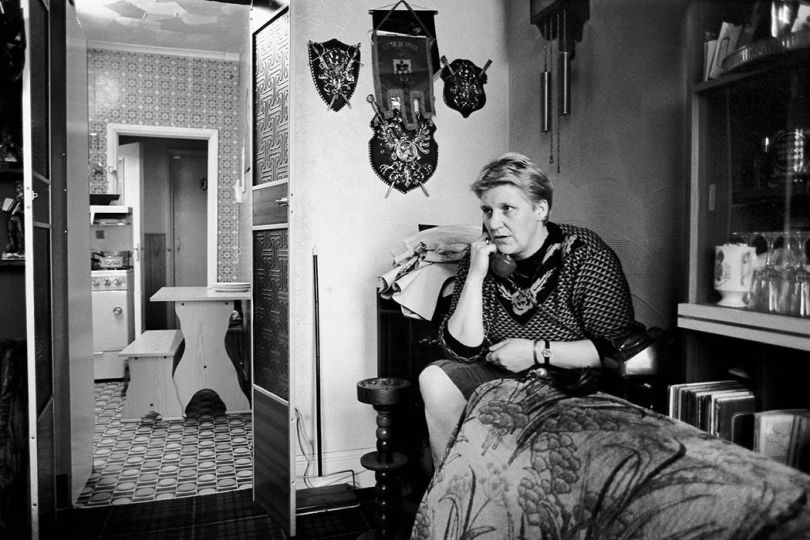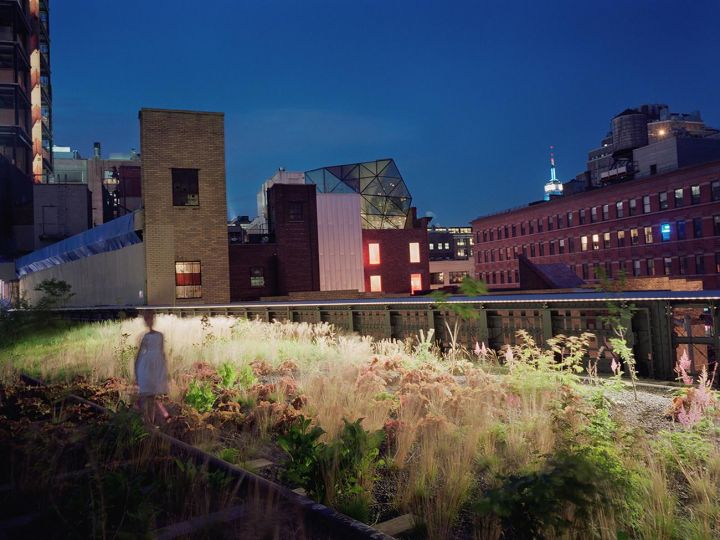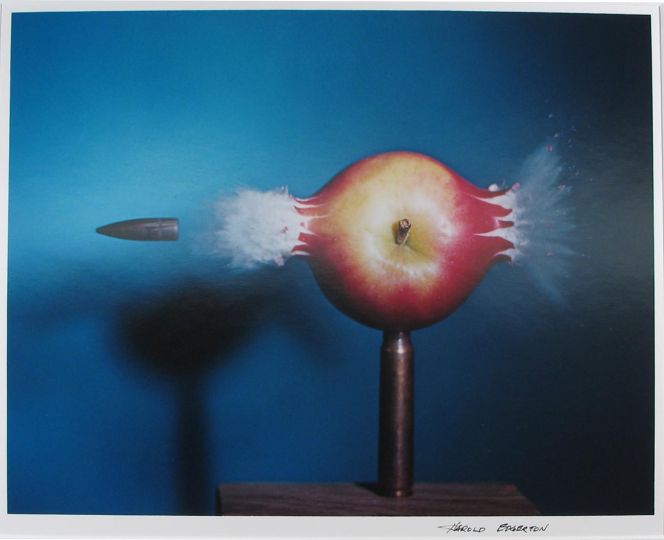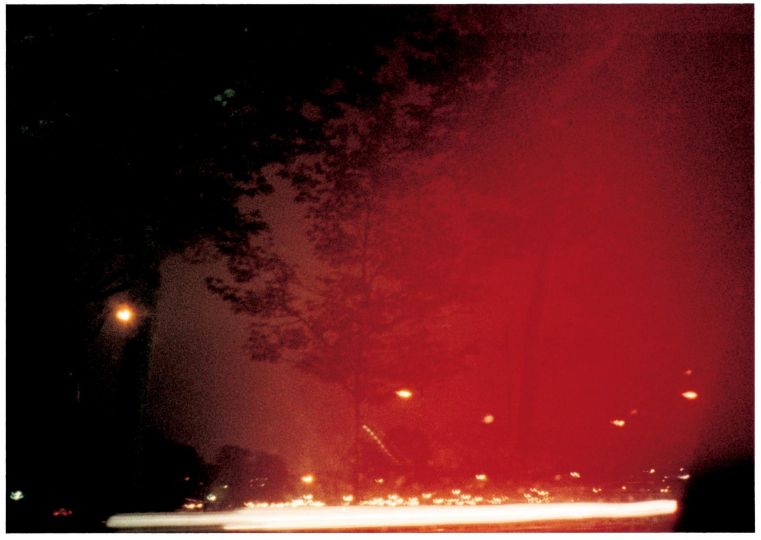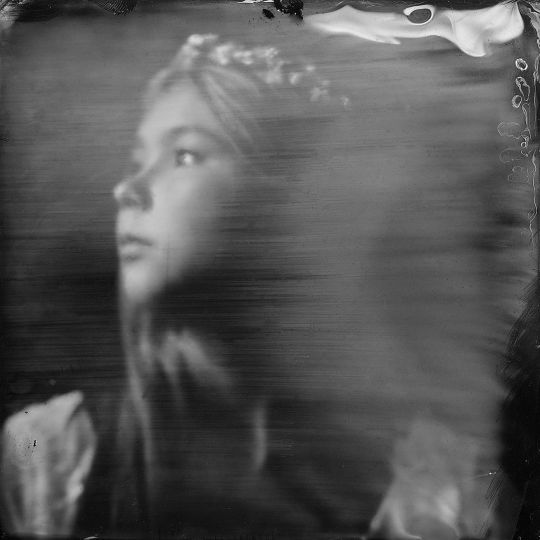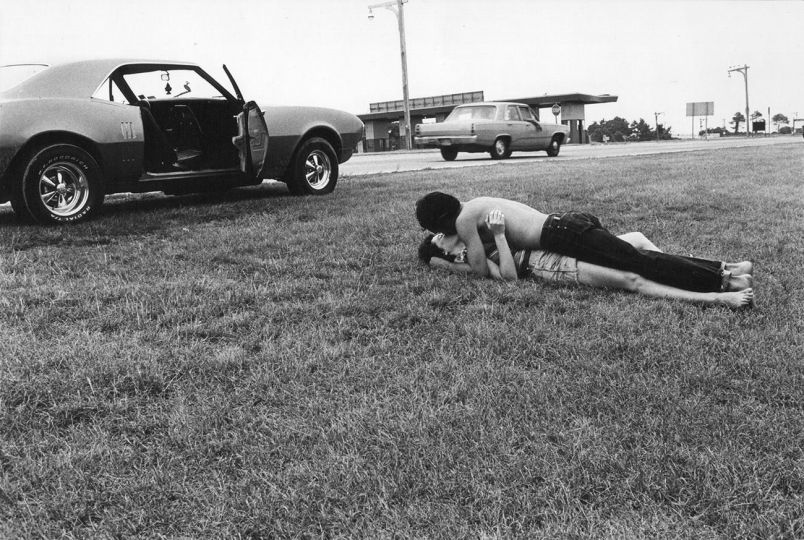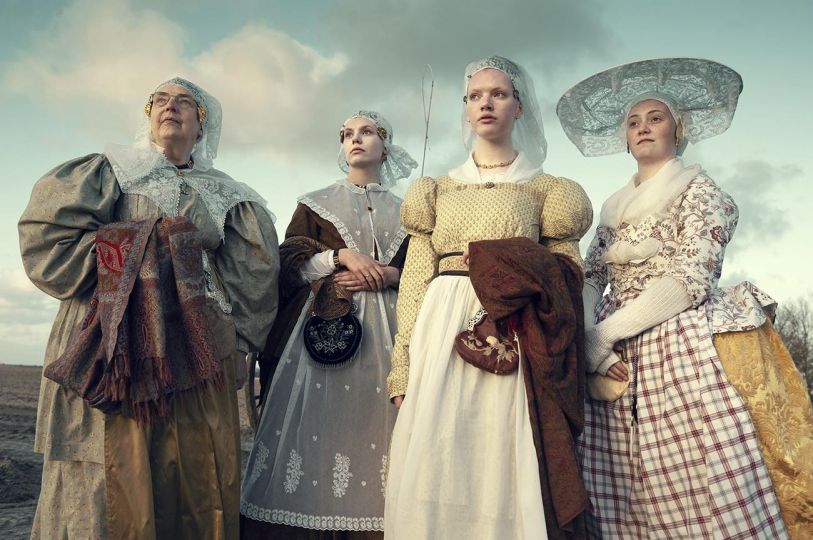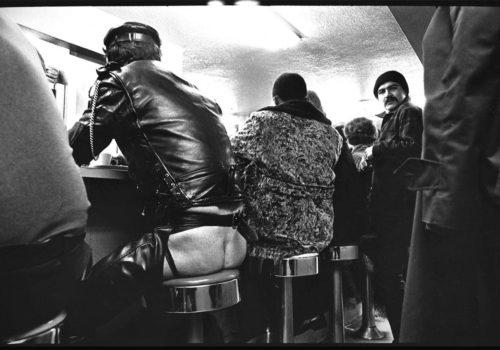Hans Peter Feldmann (1941) is a well-known figure in the international art world, but less so as a photographer.
Foundation A is presenting three series by the artist, and the main part of the exhibition is the series 100 Jahre (100 years), which he made between 1994 and 1997. Here he moves away from the found image and photographs his family, friends, acquaintances, one per year aged between 8 weeks and 100 years. He photographs them in their own environment, looking straight into the lens, in a relaxed pose of their choice. Catherine Mayeur, curator of the exhibition, presents the works in a tight chronological order. Automatically, you look for your peer, or you start looking for the age of the people around you. Feldmann’s concept is both accessible and socially relevant. It is so strong that one cannot help but think of it as an unpretentious, small-scale and contemporary homage to August Sanders’ “Menschen der 20. Jahrhunderts”.
In addition, Foundation A shows ‘All the clothes of a Woman’ from 1974, a visual inventory of a wardrobe. The images are simple, without decor or lighting effects. One wonders unconsciously if they were not photographed in summer. But we eventually realise that with the contents of the wardrobe, he is in fact representing the woman – and that this may even be a sign of affection.
Finally, we see Legs (2008), a collection of women’s legs – found images, rephotographed and pinned to the wall in a collage. As he himself says: if he makes such a composition, it obviously has a sexual background, and the whole thing is also therapeutic for him, because – as he himself says – don’t all artists have a screw loose?
The photographer
Hans Peter Feldmann could be described as a radical pioneer of German conceptual art. He works mainly with found objects and diverted images. He could be considered an offshoot of the Kapitalistisches Realismus (Capitalist Realism – German Pop Art) of Gerhard Richter, Sigmar Polke and Konrad Lueg, who introduced the everyday object and the printed image into art. To this he adds the activism of May ’68 and radical reflections on the nature, scope and participatory character of art.
This statement already poses some difficulties. Feldmann often states that he does not see himself as an artist, and even less as a photographer. He presents himself as radical, ethical and committed, looking at images and… stealing them. He not only relativises himself and his artistic practice, but also looks at it with a good dose of absurd humour: in “One pound of Strawberries”, he makes an “individual” portrait of each strawberry.
His view of photography is equally radical – he observes paradoxically that there are more photographers than art painters today, yet the images made by photographers are less relevant than ever. Only a handful of figures are worthy of interest. Sander is one of them, contemporary photographers simply trying to emulate Romantic art with their large-format images.
Feldmann’s work can be divided into two periods: the first lasts for about ten years and ends in 1979, followed by a period of silence. Kasper König (1943), lecturer, curator and director of the Ludwig Köln encouraged him to start creating again in 1989.
As far back as he can remember, he has always been an obsessive collector of images: postage stamps, trading cards, press clippings… and he compiles booklets with his “found” images. He published them from 1968 onwards as a low-threshold distribution of his artistic vision – they are at the same time a reflection of his world, and give the viewer a glimpse of his thoughts, fantasies and desires.
He prefers to stay away from the artistic practices: he does not sign his works and refuses to write a CV. He argues that art would be better off without art education, and that it would certainly be more understandable and accessible. The will to create is a primary driving force for Feldmann, and the signs in the men’s toilets are the best proof of this for him. In the same spirit, he exhibited in… toilets at the Skulptur Projekte Münster in 2007.
In 2010, he received the Hugo Boss Prize for his work ($100,000), with an exhibition at the Guggenheim Museum in 2011. He accepts the prize but creates a sculpture with 100,000 one-dollar notes in the space assigned to him…
A Foundation
The A Foundation, a non-profit organisation founded on the initiative of Astrid Ullens de Schooten Whettnall, opened its doors in October 2012. This association aims to support the creation, research, distribution and conservation of the photographic image. Every year, it organises three exhibitions, one of which focuses in particular on the work of a young photographer.
Hans-Peter Feldmann – 100 Jahre at Fondation A Stichting in Brussels
From 20 April to 2 July 2023
Open Wednesday to Sunday from 1 p.m. to 6 p.m.
A Foundation
Avenue Van Volxem 304
1190 Brussels
www.fondationastichting.com
John Devos
johndevos.photo (ad) gmail.com

